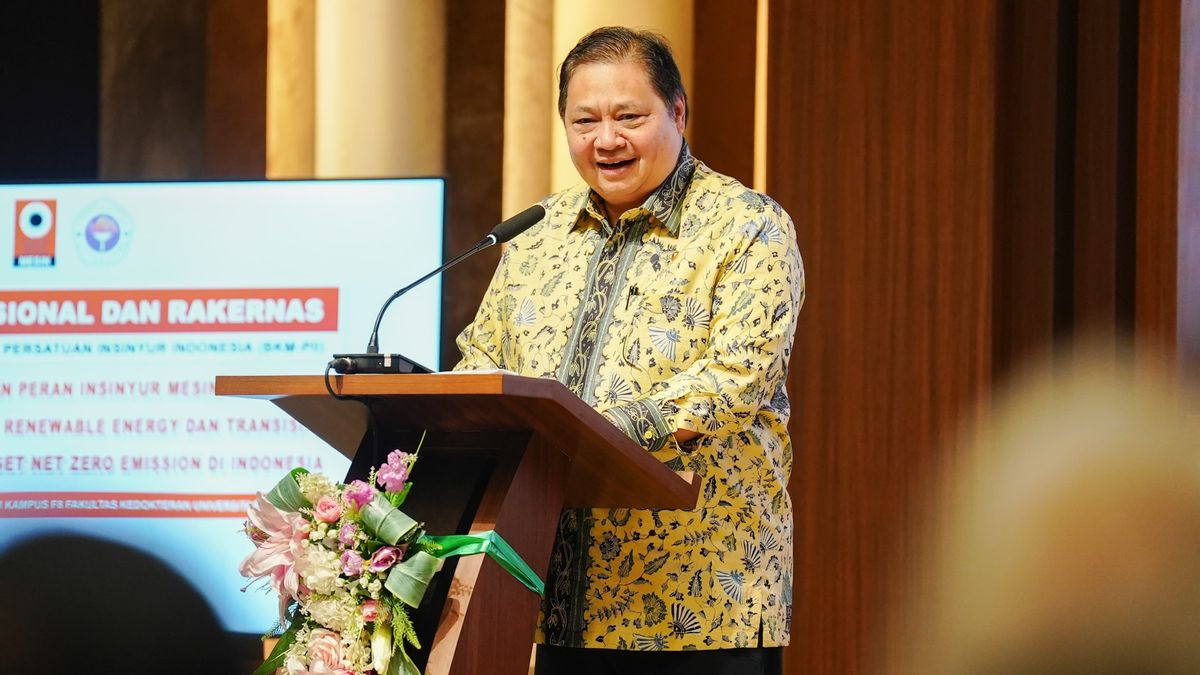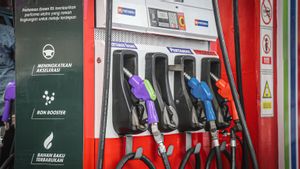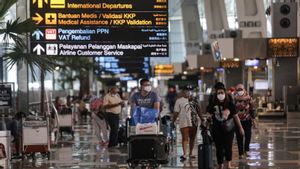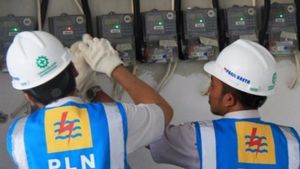JAKARTA - Indonesia continues to be committed to reducing greenhouse gas emissions, through Enhanced Nationally Determined Contribution (ENDC), which is 31.89 percent by 2030 with its own efforts and 43.20 percent with international support, and achieving Net Zero Emission by 2060 or sooner.
Coordinating Minister for Economic Affairs Airlangga Hartarto said that the acceleration of renewable energy innovation and energy transition is important.
The reason is, energy is the main contribution of greenhouse gases in Indonesia, reaching 34 percent of the total energy of greenhouse gases.
"Like it or not, this green transition is the most effective effort," he said in his statement, quoted on Sunday, September 1.
In supporting this energy transition effort, Airlangga said the Government had issued several regulations including Presidential Regulation Number 98 of 2021 concerning Carbon Economic Value (NEK), which was carried out through a carbon trading mechanism.
In addition, in February 2023 the Government has also launched an Emission Trading System (ETS) in the power generation sector and has launched the Carbon Exchange (IDX Carbon) in September 2023.
"The carbon trading scheme in the power plant sub-sector has the potential to reduce greenhouse gas emissions by at least 100 million tons of equivalent CO2 by 2030," he explained.
Airlangga said that currently PLTU is being studied which will be proposed for early retention, funded through the Just Energy Transition Partnership (JETP) scheme, where Indonesia has received a funding support commitment of USD21.6 billion which is the result of the G20 Indonesia Summit in 2022.
Indonesia together with Japan became the midwife who was born in the Asia Zero Emission Community (AZEC) and in the AZEC it was the chairman and co-chair (from the parties) of Japan and Indonesia, and I became the chairman and co-chair of this AZEC. Last week we only had a second mini-sterial meeting in Jakarta and of course this is the voter, curator of projects," he said.
Airlangga explained that all of them had seen 78 energy transition projects from various Asian countries and 34 of their projects from Indonesia. So we hope that these 34 projects can get JETP funds through AZEC.
In addition, Airlangga said, the government has also encouraged clean energy from plant materials through the implementation of the Biodiesel Mandatory.
According to Airlangga, the Mandatory B35 program in Indonesia has been a successful example in the context of achieving SDGs which makes Indonesia a country that has succeeded in implementing consistently in the last eight years with the highest level of mixing.
"Currently Indonesia is preparing for Mandatory B40 which is planned to be issued in January 2025," he said.
Airlangga said that in the future Indonesia will prepare Sustainable Aviation Fuel (SAF) for 5 percent of the use of the aviation fuel that Indonesia hopes will become the largest supplier in ASEAN.
SEE ALSO:
Then, Airlangga added, Indonesia will also develop hydro energy which is expected to reach a total capacity close to 10 gigawatts.
"Of course we need support from all parties, including PII as a human resource. We need more science, technology, engineering, and matematics, especially for digitization and the future industry including in the energy transition. So print out as many engineers as possible," concluded Airlangga.
The English, Chinese, Japanese, Arabic, and French versions are automatically generated by the AI. So there may still be inaccuracies in translating, please always see Indonesian as our main language. (system supported by DigitalSiber.id)














